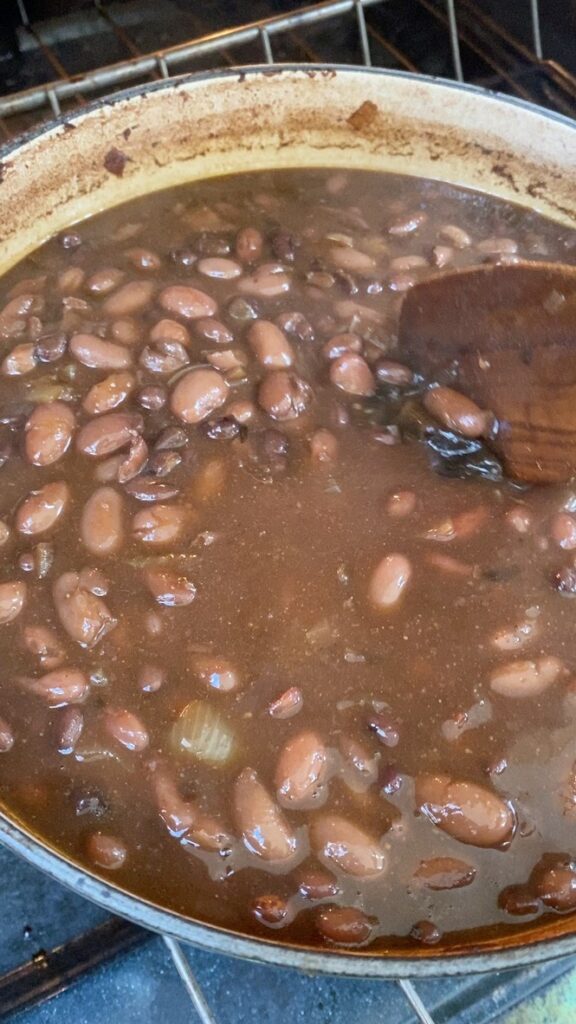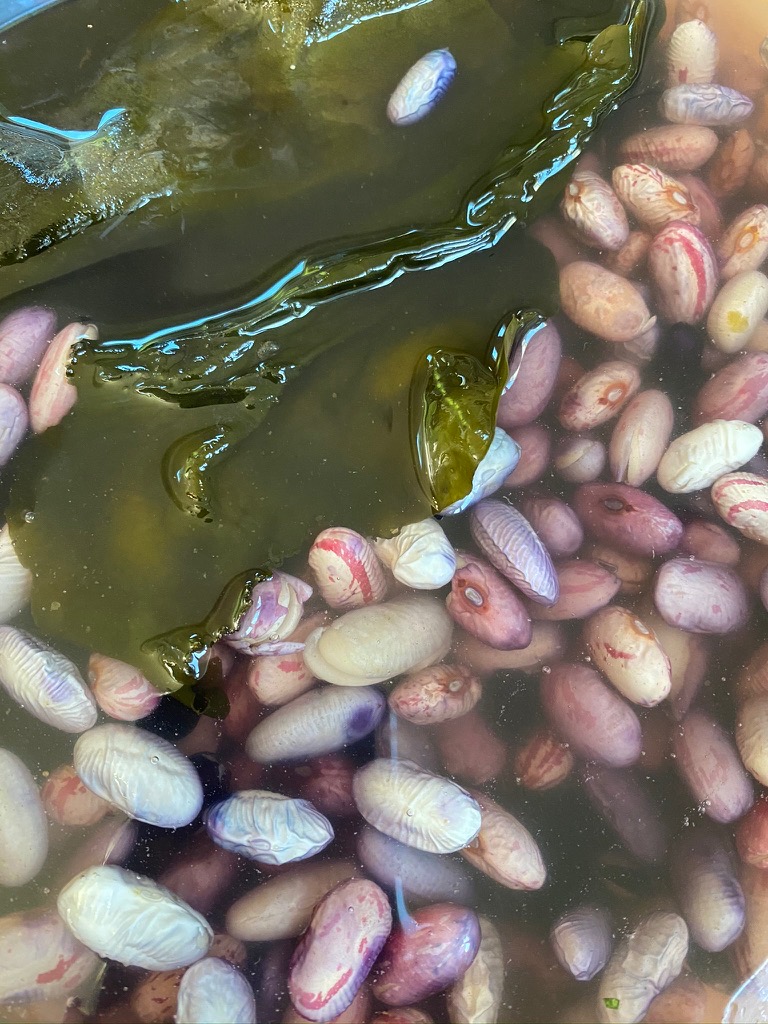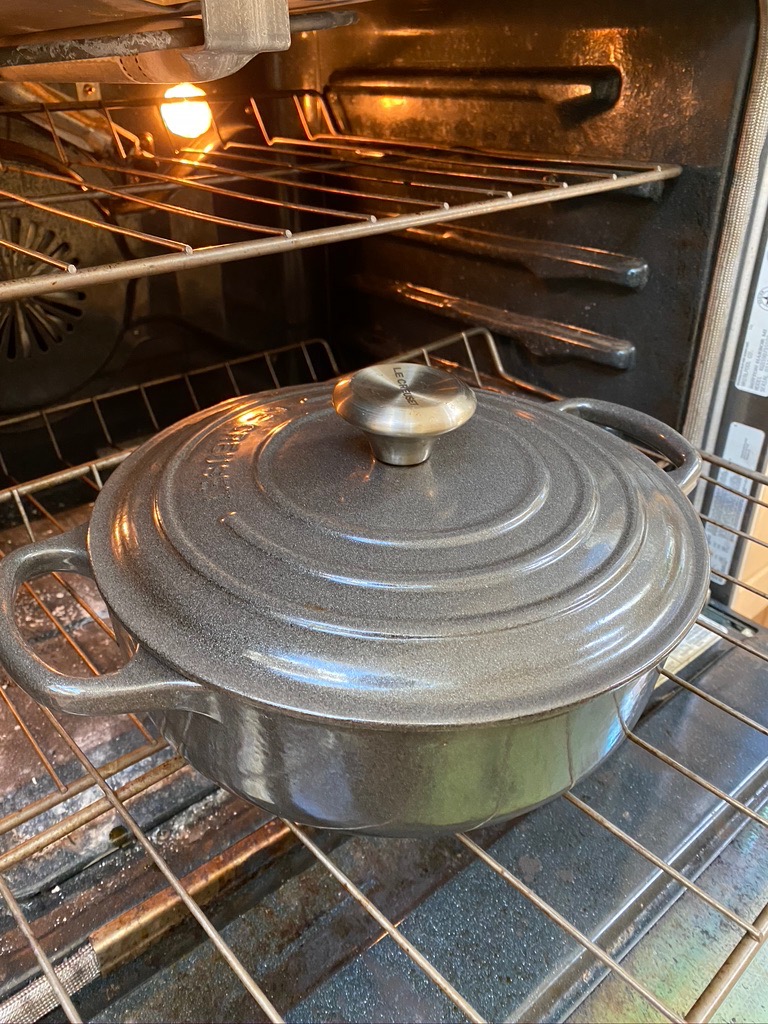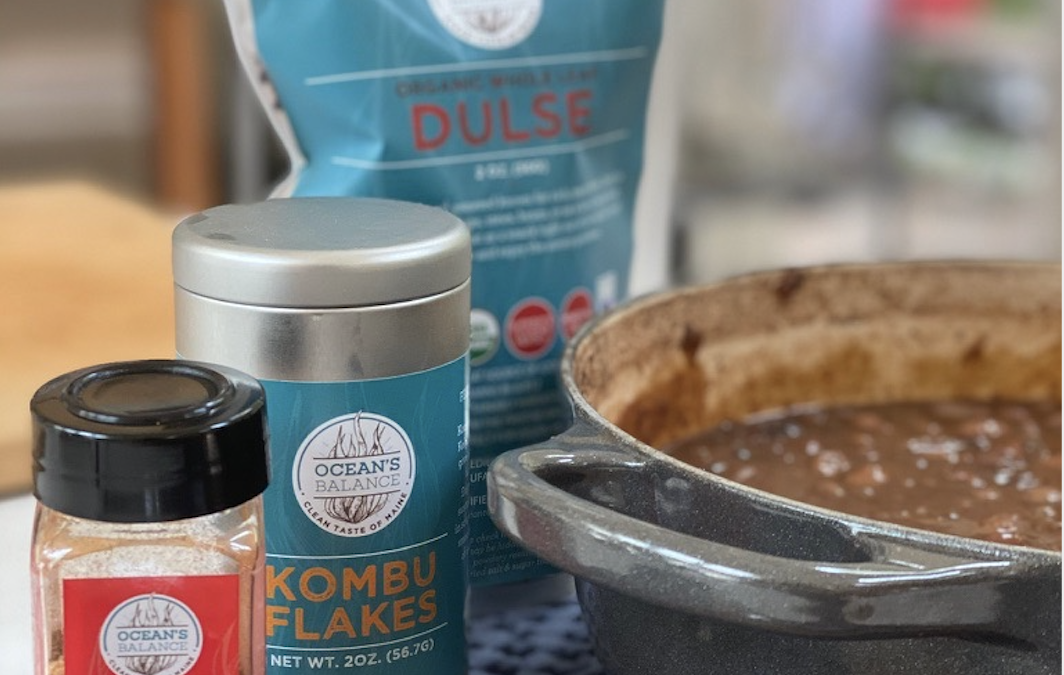Native Americans were simmering baked beans in kombu long before Europeans ever arrived, utilizing this special vegetable of the sea for its salt properties and nutrition.
They probably didn’t realize the incredible healing properties that kelp had for them. But like so many things, their natural instincts helped to create a balanced diet that helped them to thrive.
Additionally, they sweetened the beans with maple syrup for a delicious and hearty meal. These baked beans that you can try at home are simple and complex at the same time – slow-baked with molasses, maple syrup, and spice. It’s a recipe that is historic, satisfying, and well worth the time it takes to prepare them!

Serves 6
Preparation time, 24 hours plus 6-7 hours cooking
- 1 pound dried beans (I used my favorite Bay Area bean supplier Rancho Gordo’s Cranberry, Midnight Black, and Marcella beans!)
- 6 pieces of Ocean’s Balance Kombu
- 1 cup white onion, sliced and sautéed in olive oil until softened
- 1/4 cup molasses
- 1/3 cup maple syrup
- 2 teaspoons kosher salt (or kelp salt would be AWESOME!)
- 2 teaspoons dry mustard
- 1 teaspoon smoked paprika
- 1 teaspoon ground ginger
- 1 teaspoon ground kelp
- Freshly ground black pepper to taste
- 2 tablespoons cider vinegar (or to taste)
- Rinse the beans well in a colander. Place in a non-reactive bowl and fill with water covering the beans with two inches of water over them. Add 4 kombu leaves, cover, and place in the refrigerator for 24 hours.
- Preheat oven to 350 degrees F. Put the beans and the kombu in a large heavy pot. Add enough cold water to cover the beans by two inches. Bring up to a boil, then cover, turn off the heat, and place the pot in the oven.
- Cook the beans for 60-90 minutes or until they’re tender. Reduce the oven temperature to 200 degrees F. Remove the kombu from the pot and discard. Next, add the sautéed onion, molasses, maple syrup, salt, mustard, paprika, and ginger.
- Cover and return to the oven for another 6-8 hours. Add the kelp, pepper, and vinegar then taste to adjust the seasonings.
- Cool the beans down, ideally allowing the beans to rest in the refrigerator, the sauce to thicken, and the flavors to amplify.
You can also freeze your beans, so make a double batch if you want some for a rainy day!


To learn more about the benefits of eating kombu and other types of seaweed for both human and ocean health, watch my chat with Lisa Scali, Co-Founder of Ocean’s Balance below:

